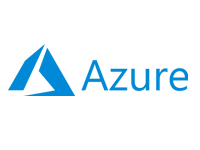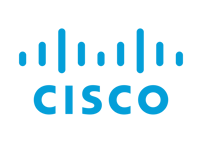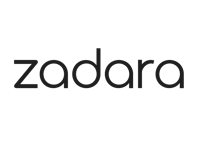- Home
- Documentation
- Nexus Stacks
Nexus Stacks
-
Documentation
- Release Notes
- Get Started
- Nexus GUI and Modules
- Access Gates
- Access Keys
- Block Storage
- Codespaces
- Cron Scheduler
- Data Bright
- Data Gate
- Data Insight
- Data Spark-house
- Data Spark-nodes
- Data Spark-solaris
- Data Stream
- Desktops
- Event Hub
- Firewall
- Flow-fx
- Groups
- Identities
- Ingenia LLM
- Instances-cn
- Instances-vm
- Instances-xvm
- Load Balancer
- Magna-app
- Magna-buckets
- Magna-db
- Magna-nodes
- Magna-s3
- Magna-se
- Magna-sqld
- Magna-sqlr
- Name Server
- Notification Gate
- Object Storage
- Private Network
- Repositories
- Roles
- SIEM Collector
- Secret Keys
- Security Scanner
- Serverless-api
- Serverless-flow
- Serverless-fx
- Serverless-json
- Serverless-mq
- Serverless-spark
- Sky Link
- Sky Network
- Sky Nodes
- Solution Stacks
- VPN Manager
- Vista Sessions
- Vista Connect
- Nexus Server
- Nexus Application
- Nexus Stacks
- Nexus Two Factor Authentication
- Nebula System
Description
Nexus Stacks are collections of YAML and HTML files used to define a configuration for a solution that is passed to the Solution Stacks service. In this document, we will describe how to add or modify existing Nexus Stacks to extend the functionality of the Solution Stacks service.
Important
Please note that creating or modifying Nexus Stacks requires proficiency in JavaScript and HTML.
Please note that creating or modifying Nexus Stacks requires proficiency in JavaScript and HTML.
Stack Files
Each Stack consists of two files with the same name but different extensions. The base name of these files will be displayed in the Solution Stacks dialog. You can download and examine an example of these files from here.
-
solution.yaml and docker.yaml
Contains the YAML code with specific item.tag names.
-
solution.html and docker.html
Contains the HTML code with a JavaScript section used to display the configuration in the Solution Stacks dialog. It replaces the item.tag names with actual values in the YAML code, which is then submitted to the Solution Stacks service through the dialog or the API. We have included "CUSTOMIZE HERE" markers.
- Windows
c:\xcware\nexus-server\c\_tpl\api\solutionstacks\items\
- Linux
/xcware/nexus-server/c/_tpl/api/solutionstacks/items/
- Windows
c:\xcware\nexus-server\c\_tpl\api\solutionstacks\docker\
- Linux
/xcware/nexus-server/c/_tpl/api/solutionstacks/docker/
YAML File Tags
In the table below, we have listed the tag names in the YAML code file along with their descriptions.
| Tag | Description |
| item.cloudid | Specifies the Sky Node ID where the Solution Stack will be deployed. This must be set when the item.deployto tag is set to singleinstance. Leave it unchanged otherwise. |
| item.name | Specifies the name of the instance, which can be anything. This must be set when the item.deployto tag is set to singleinstance. Leave it unchanged otherwise. |
| item.network | Specifies the network for the instance. This must be set when the item.deployto tag is set to singleinstance. Leave it unchanged otherwise. |
| item.cpu | Specifies the number of CPU cores assigned to the instance. The value must be formatted as "cpu-number" (e.g., "cpu-2"). This must be set when the item.deployto tag is set to singleinstance. Leave it unchanged otherwise. |
| item.cputime | Specifies how much time of the assigned CPU cores can be allocated. The value must be formatted as "cputime-number" (e.g., "cpu-50"). This must be set when the item.deployto tag is set to singleinstance. Leave it unchanged otherwise. |
| item.ram | Specifies the amount of memory, in gigabytes, that will be allocated to the instance. The value must be formatted as "ram-number" (e.g., "ram-2"). This must be set when the item.deployto tag is set to singleinstance. Leave it unchanged otherwise. |
| item.disk | Specifies the amount of disk space, in gigabytes, that will be allocated to the instance. The value must be formatted as "disk-number" (e.g., "disk-10"). This must be set when the item.deployto tag is set to singleinstance. Leave it unchanged otherwise. |
| item.net | Specifies the network bandwidth, measured in megabits per second, that will be allocated to the instance. The value must be formatted as "net-number" (e.g., "net-150"). This must be set when the item.deployto tag is set to singleinstance. Leave it unchanged otherwise. |
| item.gpu | Specifies whether the instance can access the GPU of the Sky Node. The value can be either "gpu-none" or "gpu-nested". This must be set when the item.deployto tag is set to singleinstance. Leave it unchanged otherwise. |
| item.vlan | Specify the VLAN tag ID for the instance's network only if xcLAN is selected and the Sky Node is connected to a network with multiple untagged VLANs, otherwise set it to 0. The value must be set to 0 for no VLAN or to the VLAN number. This must be set when the item.deployto tag is set to singleinstance. Leave it unchanged otherwise. |
| item.password | Specifies the root user password for the instance. This field allows the use of Secret Key Tags to obfuscate the password, ensuring enhanced security. This must be set when the item.deployto tag is set to singleinstance. Leave it unchanged otherwise. |
| item.deployto |
Specifies the switch where the solution will be deployed. Possible values are:
|
| item.dmtarget | Specifies the Magna-node ID on which the deployment will be made. This must be set when the item.deployto tag is set to magnanode. Leave it unchanged otherwise. |
| item.dctarget | Specifies the Magna-app cluster ID on which the deployment will be made. This must be set when the item.deployto tag is set to magnaapp. Leave it unchanged otherwise. |
| # DC-COMMAND | Specifies the Docker service create command for deploying to a Magna-app cluster. This must be adjusted to match the solution being deployed and is required when the item.deployto tag is set to magnaapp. If deploying to a different target, this can be set to #. |
All other item.tag names are specific to the solution and may vary. Please refer to solution.html and solution.yaml for details on the NGINX solution, which can be deployed on a new single instance, a Magna-node, or a Magna-app cluster. In contrast, docker.yaml and docker.html are used to deploy the Node-RED solution exclusively to a single instance.
 Follow
us
Follow
us



